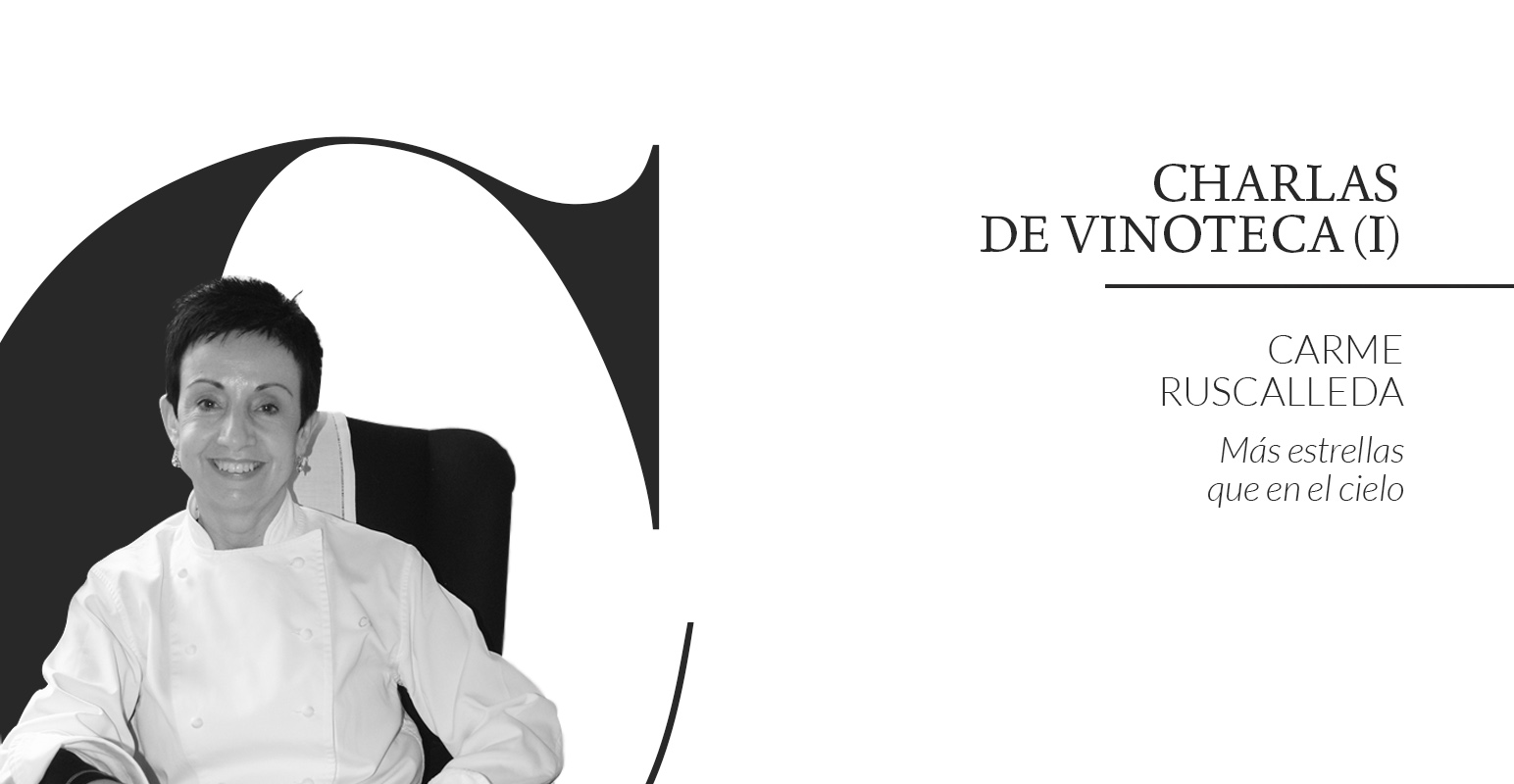Wine Bar Conversations (I)

An interview by Gastronomistas
It goes without saying that she considers wine incredibly important.
“It raises every dish that we prepare to another level,” she explains. Here, in her own words, are her
thoughts on the subject.
“I consider wine incredibly important. I believe that when a well-prepared dish that has been carefully thought through and worked out down to the very last detail, reaches the table and meets its match in terms of wine, it reaches a whole other level, gastronomically speaking. When this happens, the diner enters a new dimension, a world in which he or she perceives so much more about the dish thanks to the wine. You have to be careful though, because a good match improves the food, but a bad wine will ruin it. And a poorly chosen wine might not destroy the meal, but it won’t give customers the kind of enjoyment they’re seeking and which we wish to provide.
This is why restaurants like ours have a sizable staff and why there is a person who is dedicated exclusively to wine, who knows the type of food we make inside out, and who looks for the right pairing for each dish we prepare. He or she embraces the dish and, as I mentioned earlier, brings our work to another level, which is precisely our goal.
When you have one, two or three Michelin stars, it is your responsibility to pursue this level of excellence, to suggest what goes best with each dish. We have to care about the customer’s wine choice. Having one, two or three Michelin stars means you have to pay close attention to details like these. The same is true for the bread. Every detail matters.
Clearly, the food is what drives our work, but wine makes for a good companion and is therefore very, very important, especially in our gastronomic culture. Our gastronomic culture has three pillars that are essential to understanding our cuisine and without which it wouldn’t be nearly as good or as interesting: bread (wheat), olive oil, and wine. I always point out that these three elements give our gastronomy its personality, flavor and character. At Sant Pau in Tokyo, for example, we serve the same cuisine, but these three elements are not part of the local culinary culture. This is precisely why our customers find the food so original, exotic and appealing. And within that, wine always has its place and its own personality.
This is how I see wine in relation to my world, my work. If you were to ask me what I prefer in my personal life, I would say I like all kinds of wine, but if I had to make a choice right off the bat between white and red, I’d pick a red.”
